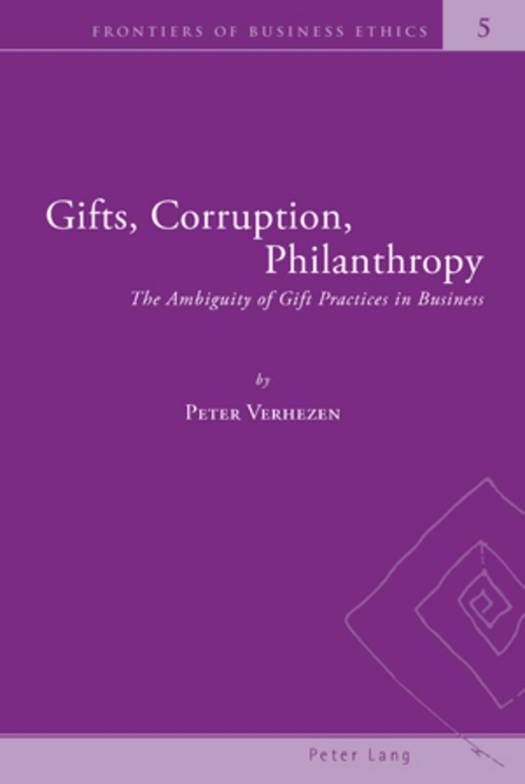
Door een staking bij bpost kan je online bestelling op dit moment iets langer onderweg zijn dan voorzien. Dringend iets nodig? Onze winkels ontvangen jou met open armen!
- Afhalen na 1 uur in een winkel met voorraad
- Gratis thuislevering in België vanaf € 30
- Ruim aanbod met 7 miljoen producten
Door een staking bij bpost kan je online bestelling op dit moment iets langer onderweg zijn dan voorzien. Dringend iets nodig? Onze winkels ontvangen jou met open armen!
- Afhalen na 1 uur in een winkel met voorraad
- Gratis thuislevering in België vanaf € 30
- Ruim aanbod met 7 miljoen producten
Zoeken
€ 96,45
+ 192 punten
Omschrijving
In this socio-philosophical book, the author explains why gifts are not just moral expressions but function as binding social practices. The first part concerns the conceptual analysis of the logic of the gift whereas the second part focuses on practical expressions of gift practices in a business context, more particularly bribery and philanthropy. How can gifts turn into bribes? Why does corporate philanthropy not necessarily imply some form of altruism? Is corruption a mere expression of cultural characteristics such as discretion and loyalty? Clear criteria are provided within the logic of the gift to distinguish gifts from bribes. Another goal is to clarify the myth of corporate donations and how such presumably good corporate behaviour could either damage or enhance the long-term reputation of a firm. Gift practices are sometimes exploited blatantly to cover up less benevolent behaviour. Understanding gift practices within a business context will allow practitioners to pursue an appropriate strategy of corporate social responsibility. Indeed, despite its inherent ambivalence, a gift should be understood as a worthy ethical and social practice within a specific cultural or organizational context.
Specificaties
Betrokkenen
- Auteur(s):
- Uitgeverij:
Inhoud
- Aantal bladzijden:
- 321
- Taal:
- Engels
- Reeks:
- Reeksnummer:
- nr. 5
Eigenschappen
- Productcode (EAN):
- 9783039118427
- Verschijningsdatum:
- 17/07/2009
- Uitvoering:
- Paperback
- Formaat:
- Trade paperback (VS)
- Afmetingen:
- 150 mm x 224 mm
- Gewicht:
- 521 g

Alleen bij Standaard Boekhandel
+ 192 punten op je klantenkaart van Standaard Boekhandel
Beoordelingen
We publiceren alleen reviews die voldoen aan de voorwaarden voor reviews. Bekijk onze voorwaarden voor reviews.











